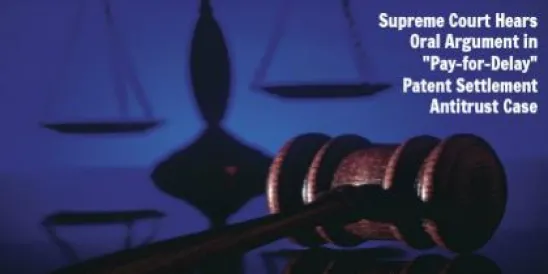If you have ever been involved in a coverage dispute with your insurance carrier, you likely already know the importance of determining which state’s law will apply. This is because different courts interpret the same policy language differently – what is covered under one state’s law may be outside the scope of coverage under the law of a different state, even under identical policy language. Thus, the question of which state’s law will apply is often decisive on the question of whether coverage exists.
Insurance carriers know this, too, and will try to find a way to ensure that the law of the state that is friendlier to carriers will apply to the dispute. In general, a litigant has a better chance of having its preferred state’s law applied if it has the ability to choose where the suit is filed. This is because each state has its own set of “choice of law” rules that govern how the forum decides what law applies to the interpretation of contracts. For example, some states follow the rule of lex loci contractus, which provides that the law of the state where the contract was made governs disputes related to the contract. Other states apply a “significant contacts” test that requires courts to examine a series of factors to determine which state has the strongest relationship to the contract (which may be different than the state where the contract was made).
Because certain states are more favorable to carriers on certain coverage or bad faith issues, whereas other states favor policyholders on those same questions, you and your carrier will likely disagree as to which state is preferable for resolving the coverage dispute. This may lead to a “race to the courthouse,” particularly in coverage disputes that touch more than one jurisdiction (e.g., where the policyholder is headquartered in one state, the policy was issued in a different state, and the events giving rise to the underlying insurance claim happened in yet another state). You might find yourself in a situation where the carrier has “beat you to the punch” and filed a declaratory judgment action against you in its preferred state before you were able to prepare and file your complaint for breach of contract, bad faith, or declaratory relief against the carrier in your preferred state.
Even so, the carrier’s filing of a suit in its preferred state does not preclude you from filing your own suit against the carrier in the jurisdiction of your choice. If you file your own suit in your preferred forum, the carrier will undoubtedly rely on the purported “first-filed rule,” which the carrier will argue provides that, in cases of concurrent jurisdiction, courts will usually defer to the suit previously filed in the other forum so long as the parties and issues are largely the same.
The good news is that all is not lost if you find yourself in this situation. Courts have held that this rule is not to be applied mechanically, and there are exceptions under which the court will actually defer to your second-filed suit. One of the more prominent exceptions is when the carrier filed its suit in bad faith, or in anticipation of you filing suit, in an effort to “forum shop.” Forum shopping is not allowed and thus a court will not give deference to the carrier’s first-filed suit if it finds that the carrier’s motive was to circumvent the law of the policyholder’s preferred state and preempt an imminent action by the policyholder. Courts are also persuaded by the fact that a policyholder’s suit, which likely includes claims for breach of contract and possibly bad faith, will necessarily resolve the issues the carrier likely raised in its declaratory judgment action (e.g., if, in the policyholder’s suit, the court finds that the carrier breached the policy or acted in bad faith, it likely also determined that the carrier should have defended the policyholder or has a duty to indemnify). A carrier’s declaratory judgment action will almost certainly not dispose of all of the issues between the parties, and, therefore, the policyholder’s suit is preferable. Some jurisdictions have even asserted an express preference for the dispute to be resolved in a coercive suit for damages rather than in a declaratory judgment action, or a preference for the policyholder as the “natural plaintiff” over an insurer that is more accurately characterized as a defendant.
Our federal system of government makes these issues even more complex – different legal principles and standards apply to the determination of the proper forum if the competing suits are filed in two different federal courts; in a federal court and a state court; in the courts of two different states; and in the courts of the same state. Whether you succeed in your fight for the dispute to be decided in your preferred forum depends on having a thorough understanding of the nuances of each of these situations.
Another option you have if your carrier files suit in a forum that is less than desirable for you is to file a motion to transfer the action to a more appropriate venue (so long as the other venue would have jurisdiction over the suit), at which point the transferee court should combine the suits. Some of the key factors courts consider when deciding whether the proposed venue is more appropriate are the parties’ forum preferences; whether the claim arose in a different forum; and the convenience and location of the parties, witnesses, and relevant documents. Courts also examine certain public interest factors such as the forum’s interest in deciding local controversies and the familiarity of the trial judge with the applicable state law. In contract disputes, courts often also consider where the contract was negotiated and executed. Finally, even if you are forced to litigate in your carrier’s preferred forum, you may still find that the court applies a different choice of law analysis than that of the forum state, or it applies one state’s law to the breach of contract claim and another state’s law to the bad faith claim.
In sum, even if your carrier wins the race to the courthouse, you are not necessarily stuck in an unfriendly forum or with unfavorable law. If the forum and choice of law are the deciding factors between having coverage and not having coverage, you still have the ability to fight the carrier’s choice of forum, and very well might end up getting into your preferred venue and having your preferred state’s law apply.





 />i
/>i

